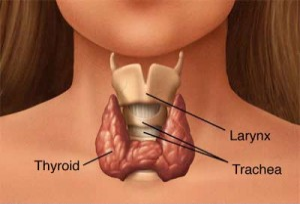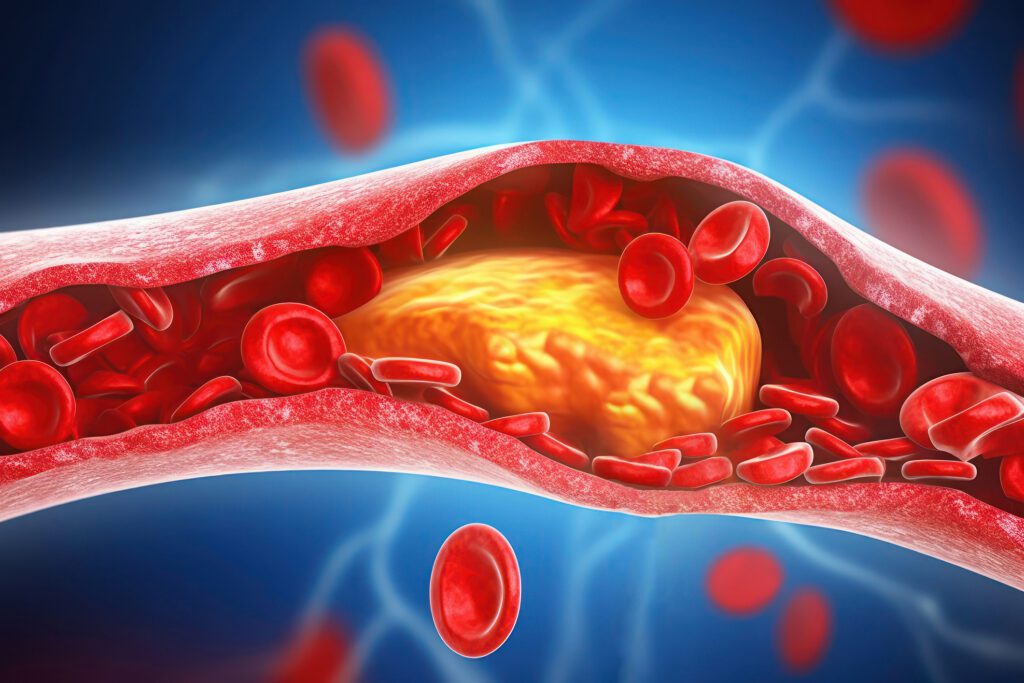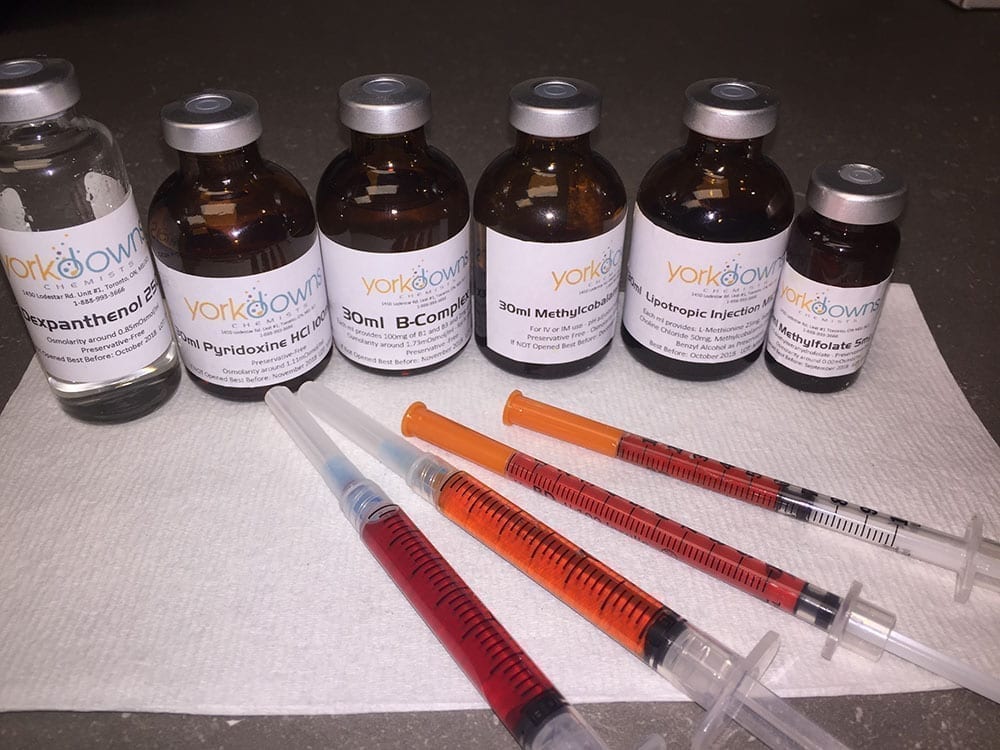 Your thyroid gland is a butterfly-shaped organ in the front of your neck. The thyroid plays an important role in your body’s metabolism. The thyroid gland takes up trace minerals, such as iodine, selenium and tyrosine, and uses these to make thyroid hormones T3 and T4, which circulate through the liver, brain and several other organs in the body as part of the endocrine system. If the thyroid is not functioning properly, even if tests are normal, the following symptoms can arise:
Your thyroid gland is a butterfly-shaped organ in the front of your neck. The thyroid plays an important role in your body’s metabolism. The thyroid gland takes up trace minerals, such as iodine, selenium and tyrosine, and uses these to make thyroid hormones T3 and T4, which circulate through the liver, brain and several other organs in the body as part of the endocrine system. If the thyroid is not functioning properly, even if tests are normal, the following symptoms can arise:
- Fatigue
- Anxiety & Panic Attacks
- Depression
- Irritable Bowel Syndrome
- Weight Gain
- Asthma & Allergies
- Migraines
- Irregular Periods
- PMS
- Decreased memory
- Irritability
- Decreased Concentration
- Fluid Retention
- Muscle and Joint aches
- Hair Loss
- Low sex drive
- Dry Skin, Dry Hair
- Carpal Tunnel Syndrome
- Insomnia
- Hives
Dr. Robert D. (“Bob”) Utiger. MD, was a highly respected endocrinologist responsible for the landmark publication of “Radioimmunoassay of Human Plasma Thyrotropin”, in 1965. In other words, Dr. Utiger discovered the thyroid screening test known today as TSH, in addition to testing for T3 and the effects of T4 conversion. Unfortunately, what has fallen to the way side of today’s highly-regarded TSH screening test, is this poignant statement by Dr. Utiger:
“I hope that doctors will still practice medicine and treat the patient not the TSH; still the best test is evaluating body temperature and heart rate and a therapeutic trial of T3.”
We are not dismissing the necessity of laboratory testing. However, this statement is profound in the face of how standard medical practice places so much importance on tests alone. It is imperative to listen to every patient, their constellation of symptoms, and to do an adequate physical exam, especially if blood work is normal but the individual feels unwell.
Only 3% of the population has hypothyroidism and is usually treated for life with T4-containing medicine. However, about 30% of the population suffers from symptoms of hypometabolism that can be reversed with short term (months) cyclic T3 Therapy (Wilson’s Syndrome). In addition, adrenal and thyroid supportive herbs and nutrients are prescribed along with dietary recommendations and lifestyle changes when utilizing T3 therapy. Our goal is to treat the underlying cause of any hypometabolic (hypothyroid, hypoadrenal, etc) condition. This takes time and patience, but the process enables your restoration to health.
Dr. Emina Jasarevic has completed advanced training and certification in treating thyroid and related adrenal disorders through the Association for the Advancement of Restorative Medicine. She is particularly experienced and knowledgeable in treatment of difficult cases, in which thyroid or adrenal symptoms have persisted, in spite of trying conventional drug medication. The Wilson’s Thyroid Temperature Syndrome approach provides a successful alternative treatment for such cases, involving natural remedies and often a sustained-release active thyroid hormone treatment to normalize body temperature and associated thyroid-related symptoms. In addition, Dr. Jasarevic recommends testing other basic building blocks of body chemistry, including nutrient and mineral status, as well as food and environmental allergens, heavy metal toxicity and pathological factors, such as bacteria, yeast and parasites. All these factors place stress on the thyroid and adrenal glands and interfere with normal physiology.
For further information on the Wilson’s Syndrome assessment and methods of treating the thyroid gland, please consult www.wilsonssyndrome.com






